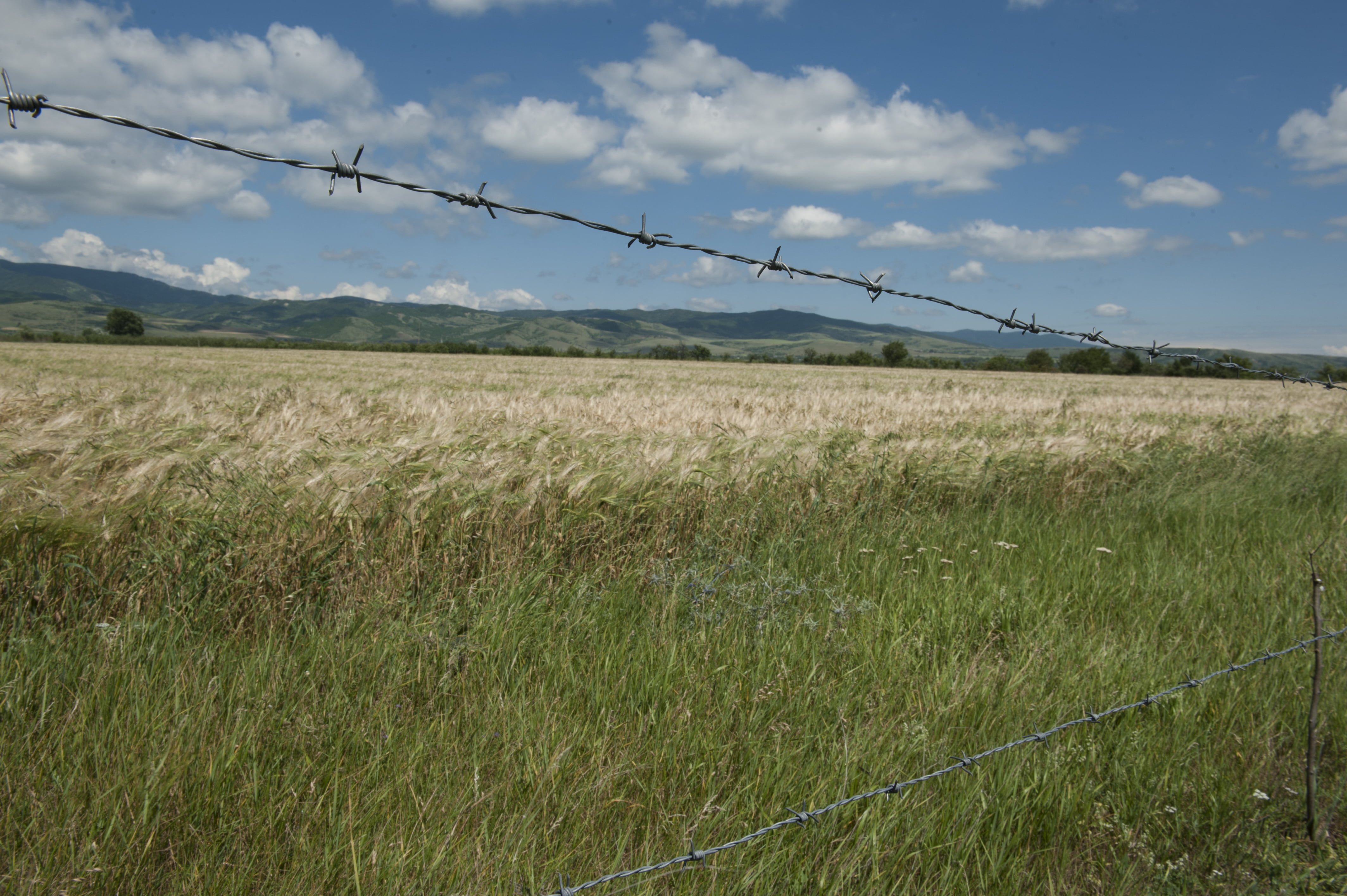The local watchdog, Human Rights Center (HRIDC), stated in its recent report that throughout 2019 “the representatives of the Russian Federation continued mass human rights violations” along the occupation line dividing Abkhazia and Tskhinvali Region/South Ossetia from Georgia proper.
According to the report, as a result of continued ‘borderization’ and marking of new areas on the Tbilisi-controlled territory, many locals living along the dividing line between occupied Tskhinvali region and Georgia proper, “lost their agricultural plots, which were the only source of income for their families.”
- Georgia Security Service: Occupying Forces Continue Fencing on Tbilisi-Controlled Territory
- IPRM Meeting ‘Disrupted’ as Tskhinvali Demands Removal of Georgia Police From Chorchana/Tsnelisi Area
HRIDC further added that “in some instances, as a result of the illegal ‘borderization,’ the local population lost their houses together with the land, which turned up on the other side of the dividing line after the so-called ‘border’ signs were erected.” The watchdog also noted that “the representatives of the Russian border forces continue arbitrary detention of people” in the areas, where locals had free access before.
Speaking of the “illegal borderization,” the HRIDC focused on developments in Chorchana, Gugutiantkari and Atotsi villages, in Khashuri, Gori and Kareli municipalities, respectively.
- Georgian CSOs Address Intl Community over ‘Humanitarian Crisis’ in Occupied Akhalgori District
- Tskhinvali Temporarily Opens Crossing Point for Certain Group of Akhalgori Residents
The report also focused on the closure of crossing points connecting the occupied regions with Georgia proper, and “humanitarian crisis” in Akhalgori Municipality in occupied Tskhinvali.
The HRIDC also stated that Tskhinvali’s decision to close the crossing point connecting occupied Akhalgori district with Georgia proper and to restrict Akhalgorians meet their humanitarian needs, violate international law.
It also noted that the Russian Federation “has established control” in Abkhazia and Tskhinvali regions “both with the significant military presence, as well as [by] providing substantial support to the local de facto administrations, (including significant budgetary financing, distribution of Russian passports for the people living in Abkhazia and providing relevant benefits).”
The Human Rights Center calls on:
- The Government of Russia and Tskhinvali leadership to immediately open the Odzisi (Mosabruni) crossing point, which connects occupied Akhalgori with the rest of Georgia; to allow international monitoring missions and humanitarian organizations to enter Akhalgori;
- The Government of Russia to stop illegal borderization and mass violation of human rights along the dividing lines of Abkhazia and Tskhinvali regions; to stop occupation of the Georgian territory and respect sovereignty and territorial integrity of Georgia;
- The Government of Georgia to use all available diplomatic and international legal mechanisms to compel the Russian Federation to stop occupation of the Georgian territory and mass violation of
human rights on the dividing lines; to intensify police patrolling in the villages along the line of occupation, where the facts of arbitrary detentions and ‘borderization’ are observed; to conduct informative and awareness-raising activities about security measures for the local population in high-risk zones along the dividing line; - The international organizations and community to intensify their effort to fight against the mass violation of human rights in Abkhazia and Tkhinvali regions and to implement monitoring activities in the occupied territories.
